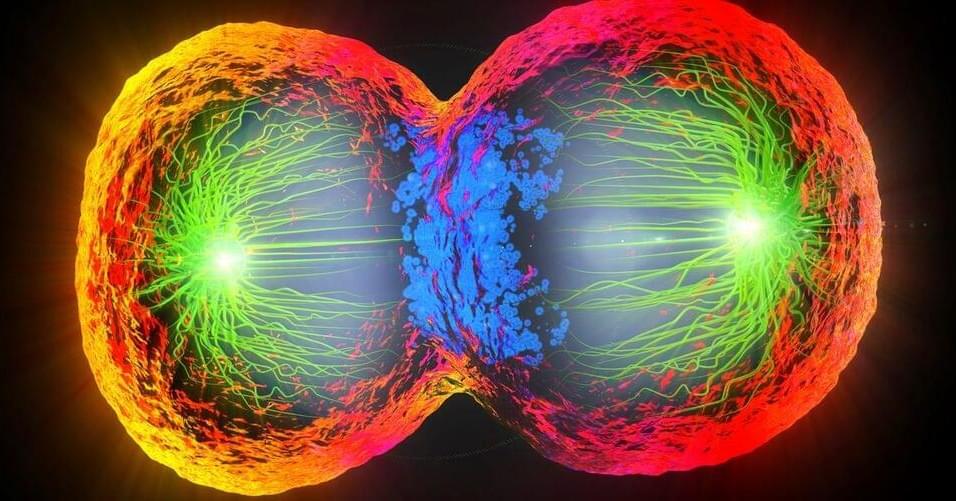The SpaceX astronaut Jared Isaacman says frequent space travel is “around the corner.” How humans will survive off-world is another question.




All-electric aircraft developer BETA Technologies has shared another important milestone in bringing its first two vessels to market. Most recently, BETA’s founder, CEO, and test pilot Kyle Clark took the production version of its ALIA eCTOL up for its first flight, as seen in the video below.
BETA Technologies is a fully integrated electric aircraft and systems developer based in Vermont. Three years ago, it debuted its first electric vertical takeoff and landing (eVTOL) aircraft, the ALIA–250. That BETA vessel has since been renamed the ALIA VTOL and completed a piloted test flight transitioning mid-air this past April.
In addition to the ALIA VTOL, BETA has also been developing an electric conventional takeoff and landing (eCTOL) plane called the ALIA CTOL. To date, it has flown tens of thousands of test miles en route to evaluation flights for FAA certification. That aircraft is targeting full approval for commercial operations by 2025.

Using drone-based lidar, researchers mapped two medieval cities, Tashbulak and Tugunbulak, in Uzbekistan, revealing detailed urban structures significant to the Silk Road’s history.
The first use of drone-based lidar in Central Asia has enabled archaeologists to uncover details of two newly discovered medieval trade cities high in the mountains of Uzbekistan.
The team used this cutting-edge technology to map the archaeological scale and layout of the cities, which are among the largest ever documented in the mountainous parts of the Silk Road, a broad network of ancient trade routes that connected Europe and Eastern Asia.

Companies that own or operate critical infrastructure increasingly rely on artificial intelligence. Airports use A.I. in their security systems; water companies use it to predict pipe failures; and energy companies use it to project demand. On Thursday, the U.S. Department of Homeland Security will release new guidance for how such companies use the technology.
The document, a compilation of voluntary best practices, stems from an executive order that President Biden signed more than a year ago to create safeguards around A.I. Among other measures, it directed the Department of Homeland Security to create a board of experts from the private and public sectors to examine how best to protect critical infrastructure. The risks run the gamut from an airline meltdown to the exposure of confidential personal information.
Alejandro N. Mayorkas, the homeland security secretary, first convened the board in May. It includes Sam Altman, the chief executive of OpenAI; Jensen Huang, the chief executive of Nvidia; Sundar Pichai, the chief executive of Alphabet; and Vicki Hollub, the chief executive of Occidental Petroleum.
SpaceX sent another group of Starlink satellites to orbit aboard a Falcon 9 launched from Space Launch Complex 40 this morning. Liftoff was at 8:21 AM.
Around 8.5 minutes later, Falcon 9 booster B1076 touched down offshore on ASDS ‘Just Read The Instructions’, which had been pre-positioned off the coast of The Bahamas in the Atlantic Ocean. The drone ship will return to Port Canaveral and B1076 will be returned to SpaceX’s Hangar X for inspection and, presumably, preparation for its next flight.


Consciousness has long intrigued thinkers, from ancient philosophers to contemporary neuroscientists. It is a complex phenomenon we encounter daily, yet we often find it difficult to fully define or comprehend.
This elusive aspect of our existence encompasses our thoughts, emotions, perceptions, and self-awareness.
Despite significant advancements in fields like cognitive science and psychology, the true nature of consciousness remains one of humanity’s most profound mysteries.
A small medical center south of Dallas is offering 3D telehealth visits. Its CEO believes the technology is a “game changer” that could help save struggling hospitals.

YORKTOWN HEIGHTS, N.Y., Nov. 13, 2024 /PRNewswire/ — Today at its inaugural IBM Quantum Developer Conference, IBM (NYSE: IBM) announced quantum hardware and software advancements to execute complex algorithms on IBM quantum computers with record levels of scale, speed, and accuracy.
IBM Quantum Heron, the company’s most performant quantum processor to-date and available in IBM’s global quantum data centers, can now leverage Qiskit to accurately run certain classes of quantum circuits with up to 5,000 two-qubit gate operations. Users can now use these capabilities to expand explorations in how quantum computers can tackle scientific problems across materials, chemistry, life sciences, high-energy physics, and more.